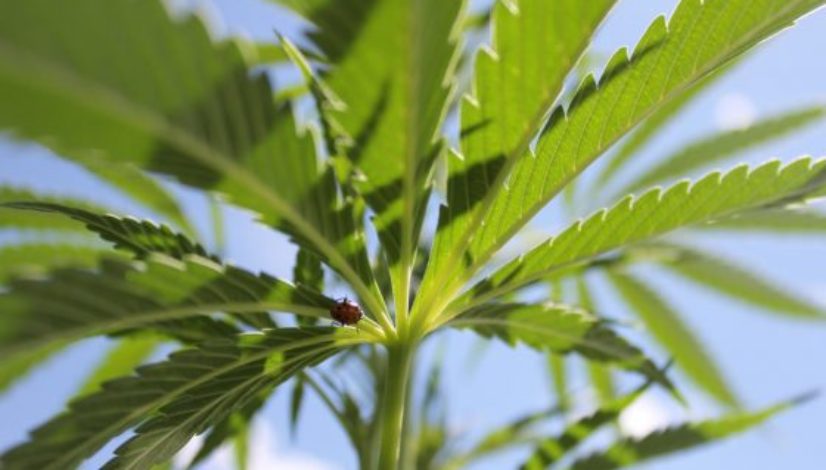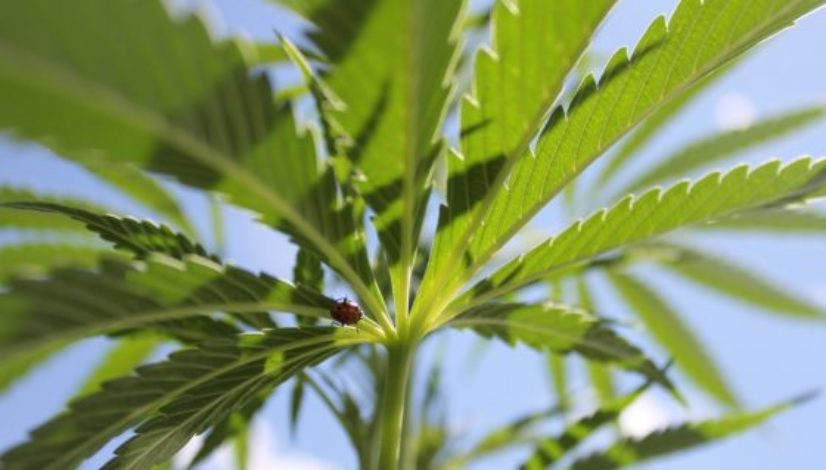Hemp Festival planned to make debut in northern Vermont

Published: Aug 19, 2017, 8:03 am • Updated: Aug 21, 2017, 11:00 am
By Amy Ash Nixon, The Caledonian Record
EAST BURKE, Vt. — Eli Harrington thinks holding the first-ever Vermont Hemp Festival in the rural, remote Northeast Kingdom makes perfect sense.
Harrington and Monica Donovan, co-founders of Heady Vermont, chose to have their inaugural hemp conference in the NEK because the Kingdom has an important history with hemp.
“The last time hemp was prevalent in the NEK, a couple of guys from the St. Johnsbury Hemp Company named Fairbanks changed the world,” says Harrington.
Harrington said the platform scale invention by the Fairbanks Scales Company was inspired by the need to weigh hemp crops at the St. Johnsbury Hemp Company in the 1830s.
The festival is planned for Sept. 9 at the new hotel and conference center at Burke Mountain.
Heady Vermont, the event’s organizer, is a 2-year-old grassroots statewide network and digital media company in Burlington’s South End Arts and Business District.
According to Harrington, “Heady Vermont covers everything from statehouse happenings to artists to investigative reporting and the identities of the individuals who are changing the face of Vermont’s cannabis culture.”
Related stories
- Minnesota tribe banking on hemp
- The Industrial Hemp Farming Act is back — is this the year Congress legalizes the crop?
- Illinois hemp bill could increase access to medical marijuana
- Hemp is the new kale, say two N.Y. farmers who are gurus in finance, cybersecurity
- West Virginia hemp farming a growth industry
The event has an admission charge, and organizers say there will be an NEK resident discount.
There is more information about the conference at the website.
Heady Vermont’s announcement noted, “As the future of recreational and medical marijuana remains uncertain, the national hemp industry is growing and Vermont remains one of 17 states where hemp cultivation is legal under state law.”
“Hemp is defined practically as cannabis that has less than .3% of the compound THC, the cannabinoid of the plant showing psychoactive effects. Historically, hemp was a government-mandated crop grown by American settlers and even inspired Vermont’s own industrial revolution via the Fairbanks Scales, originally invented to weigh wagon loads of hemp,” Heady Vermont’s news release about its upcoming Hemp Festival says.
“We’re fortunate in Vermont that we have strong agricultural hemp protections and low barriers to entry,” said Heady Vermont Publisher Monica Donovan. “Now that a much larger market is emerging locally, regionally, and nationally, we think it’s important to provide resources, information, and practical instructions to as many interested parties as we can.”
Sponsors for the Hemp Fest include: The University of Vermont Agricultural Extension, Ceres Natural Remedies, the Vermont Hemp Company, Humble Roots Horticulture and the PhytoScience Institute.
The event will also include a business pitch competition sponsored by Purple Fox Engineering – and entries are due by Aug. 15.
Harrington and Donovan founded Heady Vermont about two years ago believing “somebody should be focusing on this full time,” said Harrington. “We started this company with the value and mission that people should be getting the most accurate and well-researched information about cannabis they could. We are in a sort of historic, transitional time period right now in the U.S.”
“We felt like it was a subject that was of interest to us and a lot of other Vermonters,” said Harrington. “There is a cannabis culture in Vermont, and there is a cannabis community, and it deserves to have high-quality information and be presented in a serious way.”
“There is an explosion of hemp products,” added Donovan, who has grown hemp herself, “It’s a growing market, we’re pretty excited about it!”
Heady Vermont sponsored an event at Parker Pie in West Glover in April, said Harrington, and “most of the people who showed up were people who were land owners or artisans or food makers who wanted to know about hemp . We wanted to talk about those opportunities and give all those folks who have questions all this information in one concise place and at one time.”
Heather Darby, an agronomist with the University of Vermont (UVM) Extension in St. Albans, on Friday said the extension is both a sponsor and a collaborator in the Hemp Fest coming to Burke Mountain Resort in a few weeks.
“I’ve been working on industrial hemp research for two years,” said Darby. “Essentially, the 2014 Farm Bill allowed research institutions to research industrial hemp and marketing and production opportunities for the U.S., so we could legally conduct research and look at the opportunities for industrial hemp as a crop for farmers in the U.S.”
Darby said, “I’ve been very interested in figuring out if the crop can actually be grown here and what are the opportunities for farmers, so that’s my role.” She said connections with local and regional businesses which would be interested in buying Vermont hemp have been developed, “That’s our angle, and so we’re looking primarily at fiber and seed. Our role at the conference is to help farmers and others understand the industry of agronomics and production techniques that are used to grow this crop and what are the potential yields and uses.”
“The science behind hemp is just incredible. It’s really an interesting plant. It’s related to hops, they are in the same family,” Darby said.
The UVM hemp information states, “Industrial hemp is a historical crop. It is estimated that hemp was first cultivated in China between 4,000 and 6,000 years ago, making it one of the first cultivated crops. It was brought to the U.S. in 1645 and was a major crop until the 1940s, used in making paper (it is said that the first drafts of the Declaration of Independence were printed on hemp paper), cloth (the first U.S. flag and first pair of jeans were made of hemp).”
Kyle Gruter-Curham, founder of Creek Valley Cannabidio in Irasburg graduated from Sterling College in 2009 with a degree in Conservation Ecology, and while teaching at the Laraway School in Johnson, began growing his own food to become sustainable, he said.
“This hobby style farming quickly became a full blown passion. I then moved my small farm on to 100 acres and attempted to make it economically viable. I tried many crops at this time, as well as raising various types of livestock. It was definitely a struggle to say the least, the overhead was super high and the returns super low,” said Gruter-Curham. “I then stared to gear toward crops that needed less inputs and had higher returns, garlic being the main one. It wasn’t until the fall of 2015 that CBD (or Cannabidiol, a medicinal, therapeutic component extracted from the plant) hemp caught my attention.”
He said, “At this time I was watching friends harvest CBD hemp crops in Colorado. This had interested me but I wasn’t committed to grow it yet, I began to do research at this time on CBD as a viable crop, as well as the legality around it.”
“During the summer of 2016 I grew out 1,000 plants on one acre . At this time we were also testing a few varieties to see what would do the best in Vermont. Our first crop was successful, but was mostly for medicine for family and friends.”
He said, “I knew if we wanted to be successful we would have to create our own brand and have a unique product. I then started to get amazing feedback form people using our oil, and quickly knew my purpose. I then began to combine two things I was passionate about: solvent-less CBD oil and Kombucha to create a unique product. I geared up to make the jump from my full-time job as a science teacher to farmer and launch our CBD Kombucha.”
This year, the farm is growing more hemp, and registered as Creek Valley Cannabidiol LLC said Gruter-Curham, “Our goal is to increase the health of people, soil and the community through the uses of local food systems, probiotics, sustainable agriculture and cannabis.”
This spring, the farm began marketing its line of kombucha, its main seller being their Ginger CBD Kombucha.
Gruter-Curham said, “The NEK of Vermont is one of few places in the country where local food systems get tremendous support, however it’s not just growing hemp that’s going to get farmers out of debt, it’s marketing a product from that crop and building their brand.”
Via AP Member Exchange. Information from: The Caledonian-Record
Topics: cbd, hemp, hemp festival, Vermont




